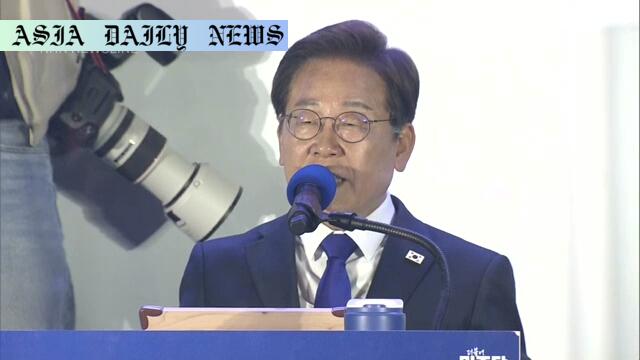President Immunity delays courtroom proceedings indefinitely amid constitutional debate.
The South Korean court postponed President Lee Jae-myung’s retrial indefinitely.
Constitutional immunity for sitting presidents is at the heart of this decision.
Legal experts remain divided on immunity application to ongoing trials.
Lee faces additional trials, increasing his judicial and political challenges.

Introduction: The Concept of Presidential Immunity
The recent decision by South Korea’s high court to delay President Lee Jae-myung’s retrial has reignited debates around constitutional immunity. This exemption, which shields sitting presidents from criminal prosecution during their term, is a foundational yet contentious aspect of democratic systems. The indefinite postponement of the retrial, originally scheduled for June 18, underscores the complexities surrounding the interpretation and application of this constitutional provision.
In May, South Korea’s Supreme Court ruled that Lee had violated election law by making false statements during his unsuccessful 2022 presidential campaign. The ruling overturned a prior decision that had cleared him and referred the case back to the Seoul High Court. However, citing the constitutional immunity afforded to sitting presidents, the high court has chosen to delay proceedings, leaving uncertainty about the case’s trajectory.
Controversy Over Ongoing Trials and Immunity
Legal experts are deeply divided on whether the constitutional immunity of a president extends to cases already underway. Neither South Korea’s Constitution nor its legal framework offers a definitive answer, creating significant uncertainty. While some argue that immunity should only apply to new criminal prosecutions initiated during a presidency, others contend that it encompasses all legal proceedings, including retrials.
The high court’s decision seems to align with the second interpretation, effectively shielding President Lee during his term. Local media outlets suggest this decision reflects reluctance to engage in politically sensitive legal action against a sitting leader. However, this has sparked criticism from opposition groups and some legal scholars, who view the decision as setting a dangerous precedent for judicial independence and the rule of law.
Political Implications of Postponing the Retrial
The decision to delay President Lee’s retrial has significant political and legal implications. As a member of the ruling Democratic Party, Lee remains a polarizing figure in South Korean politics. His ongoing legal battles, including other criminal trials, cast a shadow over his presidency and raise questions about his ability to govern effectively.
The Democratic Party has reportedly proposed legislative changes to halt trials against sitting presidents, a move critics say could undermine accountability and transparency. Such initiatives could further polarize South Korea’s political landscape, deepening divisions between the ruling party and the opposition and eroding public trust in democratic institutions.
The Road Ahead: Challenges and Opportunities
President Lee’s legal and political challenges highlight broader issues within South Korea’s judicial and political systems. The lack of clarity regarding presidential immunity underscores the need for legal and constitutional reforms to address ambiguities and ensure accountability. Balancing immunity with the principles of justice and rule of law is a delicate task but essential for the health of South Korea’s democracy.
As this case unfolds, it offers an opportunity to reflect on the role of judicial institutions in safeguarding democratic values and the importance of transparency in political leadership. The outcome will not only shape President Lee’s legacy but also set a precedent for future leaders and their relationship with the judiciary.
Commentary
Understanding the Legal and Political Complexity
The indefinite postponement of President Lee Jae-myung’s retrial is a stark reminder of the delicate interplay between politics and law in South Korea. While the Constitution’s provision on presidential immunity serves a clear purpose—to protect the office of the presidency from undue interference—it has also opened the door to significant legal ambiguity. This case underscores the importance of addressing these gaps to prevent misuse or misinterpretation of constitutional protections.
A Double-Edged Sword for Democracy
Presidential immunity, as a concept, aims to ensure the stability and continuity of governance, especially in politically turbulent times. However, when applied to ongoing legal matters, it risks undermining the very principle of accountability that sustains democracy. The high court’s decision to delay the retrial might shield President Lee from immediate legal jeopardy, but it also raises questions about judicial independence and the equal application of the law. Public perception of fairness and justice is crucial for the credibility of any democratic system, and decisions like this risk eroding that trust.
The Ripple Effects on South Korean Politics
Beyond the immediate legal implications, this case has far-reaching consequences for South Korea’s political landscape. President Lee’s legal troubles have become a lightning rod for political debate, with his opponents using them to question his integrity and leadership. At the same time, his supporters point to constitutional immunity as a necessary safeguard against politically motivated prosecution. This polarization threatens to deepen divisions within South Korean society, making it all the more important to resolve these issues transparently and decisively.
Ultimately, the ongoing debates about President Lee’s retrial, presidential immunity, and judicial independence highlight the need for robust institutions that can navigate the complex intersections of law, politics, and governance. This case is not just about one man or one presidency; it is about the future of South Korean democracy and the principles that underpin it.


